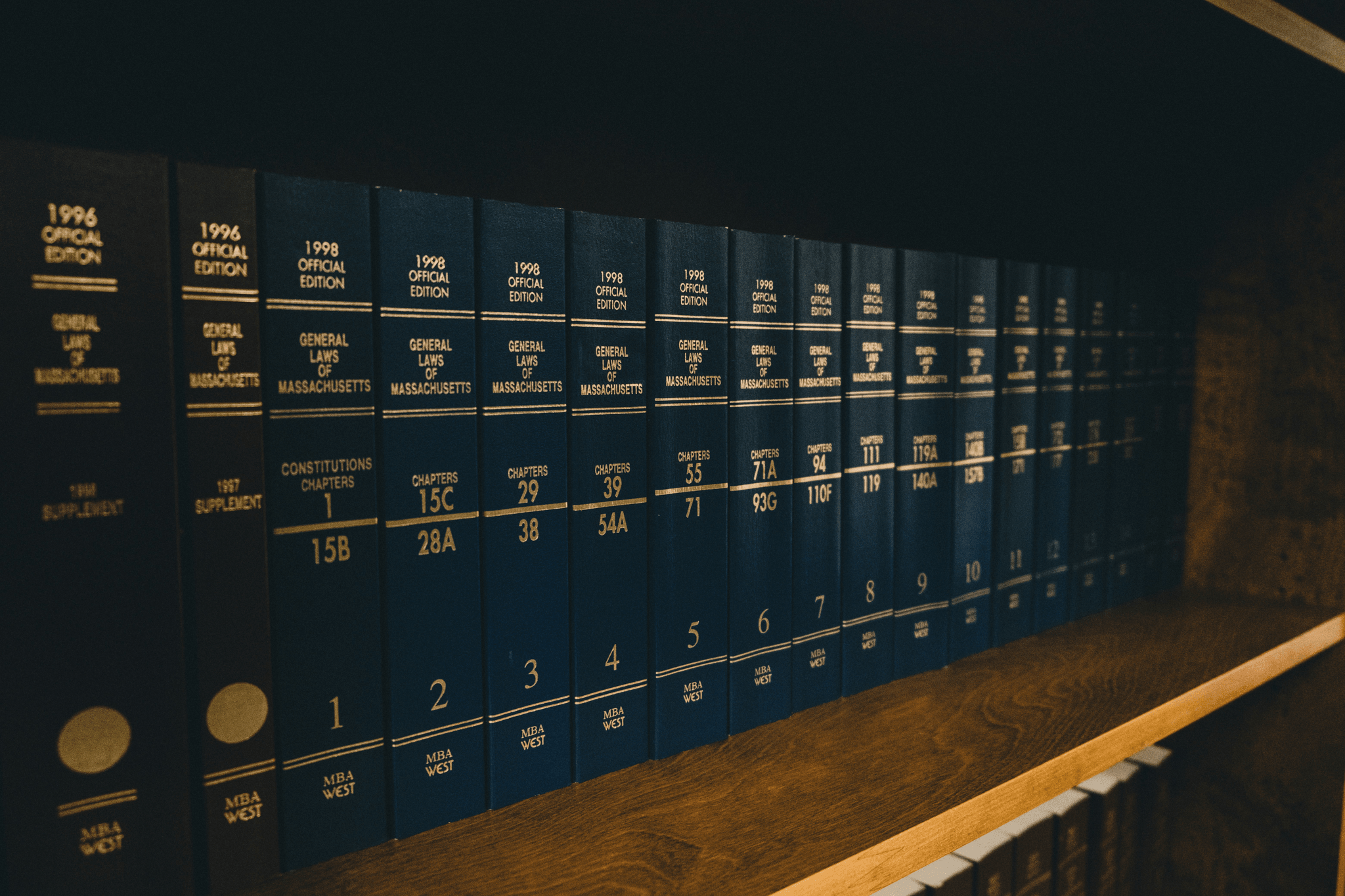Introduction

Navigating the complexities of legal action can feel like wandering through a labyrinth, especially when it comes to how to sue a Chinese company. The intricacies of the Chinese legal system, coupled with cultural nuances, make understanding your legal standing essential before embarking on this journey. Whether you’re facing issues related to contracts, intellectual property, or business disputes, knowing where you stand is the first step toward effective resolution.
Understanding Your Legal Standing
Before diving headfirst into litigation, it’s crucial to understand your legal standing in relation to the matter at hand. This means assessing whether you have valid grounds for a lawsuit and determining if you can indeed sue for intellectual property violations or other grievances. Engaging with a knowledgeable China lawyer can help clarify your position and outline potential outcomes based on existing laws.
Key Factors Before Initiating a Lawsuit
There are several key factors to consider before initiating any form of legal litigation against a Chinese entity. These include evaluating the strength of your case, understanding jurisdictional issues that may arise, and recognizing whether alternative dispute resolutions might be more beneficial than traditional lawsuits. Taking these elements into account will not only prepare you for what lies ahead but also save time and resources in the long run.
Finding the Right Legal Representation
Selecting an attorney for law matters in China is pivotal to achieving favorable results in your case. A seasoned litigation attorney familiar with local regulations will provide invaluable insights and strategies tailored specifically to your situation. When searching for a lawyer in law who specializes in international disputes or intellectual property rights, ask pertinent questions that reveal their experience and approach—this could be the difference between success and setback.
Assessing Your Case

Before diving into the complexities of a lawsuit, it's crucial to assess your case thoroughly. This involves evaluating whether you have valid legal grounds, understanding jurisdictional issues, and recognizing the importance of evidence and documentation. By taking these steps, you can better prepare yourself for the journey ahead in how to sue a Chinese company.
Evaluating Legal Grounds for a Lawsuit
To initiate any legal action, you must first establish valid legal grounds for your lawsuit. This means determining if you have a legitimate claim based on contract disputes, torts, or even intellectual property violations. Engaging an experienced attorney for law will help clarify these grounds and ensure that your case is built on solid legal foundations.
Understanding how to sue a Chinese company requires knowledge of specific laws and regulations in China that may apply to your situation. If you're considering filing against a Chinese entity, consulting with a China lawyer can provide insights into whether your claims are actionable under local laws. Your litigation attorney should be able to guide you through this evaluation process effectively.
Identifying Jurisdictional Issues
Jurisdiction is another critical factor when assessing your case; it determines where your lawsuit can legally be filed and heard. When dealing with international matters or cases involving foreign companies, identifying jurisdictional issues becomes even more complex. A knowledgeable Chinese lawyer will help navigate these waters by clarifying which courts have authority over your dispute.
In some instances, jurisdiction may hinge on where the contract was signed or where the alleged wrongdoing occurred; thus understanding these nuances is essential when preparing to sue for intellectual property or other claims against a Chinese company. If jurisdiction is misidentified, it could lead to wasted time and resources—something no one wants when facing legal litigation challenges.
Importance of Evidence and Documentation
Having strong evidence and thorough documentation cannot be overstated when preparing for any lawsuit—especially in cases involving international parties like those found in China. Collecting relevant documents such as contracts, emails, invoices, and any correspondence related to your dispute is vital in establishing credibility and support for your claims.
Moreover, working closely with an attorney who specializes in litigation will ensure that all necessary evidence is properly gathered and presented according to legal standards established within China's judicial system. Remember that without solid evidence backing up your assertions about how to sue a Chinese company effectively, even the best arguments may fall flat during trial proceedings.
In conclusion, assessing your case requires careful consideration of various factors including legal grounds for action, jurisdictional clarity, and robust evidence collection—all essential elements leading toward successful outcomes in legal disputes involving Chinese entities.
Choosing the Right Attorney

When it comes to navigating the complex waters of legal litigation, especially in a foreign country like China, selecting the right attorney can make all the difference. This section will guide you through the pivotal role of an experienced China lawyer, outline the benefits of hiring a litigation attorney, and provide essential questions to ask potential attorneys.
The Role of an Experienced China Lawyer
Hiring an experienced China lawyer is crucial when considering how to sue a Chinese company. These attorneys possess in-depth knowledge of local laws and regulations, which can significantly impact your case's outcome. Furthermore, their familiarity with cultural nuances ensures that your legal strategies align with China's unique judicial environment.
An experienced Chinese lawyer can also help you identify viable legal grounds for your lawsuit and assist you in gathering necessary documentation. They understand the procedural intricacies that come into play during litigation and can guide you through each step effectively. Ultimately, their expertise will empower you to navigate challenges that may arise during your legal journey.
Moreover, having a seasoned attorney for law by your side provides peace of mind as they advocate for your interests in court or during negotiations. Their ability to communicate effectively with local authorities and other stakeholders is invaluable when pursuing justice in a foreign jurisdiction. In short, an experienced China lawyer is not just a representative; they are your strategic partner in achieving favorable outcomes.
Benefits of Hiring a Litigation Attorney
Opting for a litigation attorney brings numerous advantages when grappling with legal issues such as intellectual property disputes or commercial conflicts in China. These specialized lawyers have honed their skills specifically for courtroom scenarios and are adept at formulating winning strategies tailored to your case’s needs. Their focus on litigation means they are well-versed in trial procedures and tactics that can give you an edge over opposing parties.
Additionally, hiring a litigation attorney allows you to leverage their extensive network within the Chinese legal system—an asset that could prove invaluable when seeking expert witnesses or gathering evidence essential for your case. They understand how to navigate local courts efficiently while ensuring compliance with all procedural requirements so that nothing jeopardizes your suit against a Chinese company. This level of expertise is particularly beneficial if you're looking to sue for intellectual property violations where timing and precision matter greatly.
Furthermore, having dedicated representation means you'll have someone who can handle negotiations on your behalf while minimizing stress throughout the process. A skilled litigation attorney will be prepared for any eventuality—whether it be settlement discussions or courtroom battles—and will work tirelessly toward achieving optimal results for you.
Questions to Ask Potential Attorneys
Before settling on any lawyer in law, it's essential to ask key questions that reveal their suitability for handling cases like yours effectively. Start by asking about their experience specifically related to how to sue a Chinese company; this will provide insight into whether they have tackled similar cases successfully before. You might also inquire about their familiarity with intellectual property laws if that's relevant to your situation since not all attorneys possess this specialized knowledge.
Another important question involves understanding their approach toward client communication—how often will they update you on case progress? Clear communication is vital during any legal process; thus knowing what level of engagement you can expect from them helps set appropriate expectations from the outset.
Lastly, don't hesitate to discuss fees upfront! Understanding billing structures—whether hourly rates or flat fees—is crucial so there are no surprises down the line as you embark on this journey together toward resolution through legal litigation.
Preparing for Legal Action

When gearing up to take legal action, preparation is key. Understanding how to sue a Chinese company requires meticulous planning and organization. This section will guide you through gathering necessary documentation, drafting your complaint, and understanding the legal procedures in China.
Gathering Necessary Documentation
Before you can even think about stepping into a courtroom, you need to gather all relevant documentation that supports your case. This includes contracts, emails, correspondence with the Chinese company, and any evidence related to your claim. Having a well-organized collection of documents can make all the difference in how effectively your attorney for law presents your case.
Don't forget to include any records that demonstrate the damages you've suffered or the intellectual property issues at hand if that's part of your claim. A diligent lawyer in law will appreciate having this information upfront; it saves time and enhances their ability to strategize effectively on your behalf. Remember, thorough documentation not only strengthens your position but also showcases professionalism—a trait highly valued in legal litigation.
Drafting Your Complaint
Once you've gathered all necessary documents, it's time to draft your complaint—a crucial step when navigating legal action against a Chinese company. Your complaint should clearly outline the basis of your lawsuit, detailing what happened and why you believe you're entitled to relief or damages. Engaging a litigation attorney who specializes in international cases can ensure that this document adheres to local laws and regulations.
In drafting this essential document, be as specific as possible about the claims you're making—whether it's breach of contract or an infringement on intellectual property rights. A well-crafted complaint sets the tone for subsequent proceedings and can even influence how quickly things move forward in court—so don't skimp on detail! Your China lawyer will likely have templates or examples that can guide you through this process efficiently.
Understanding Legal Procedures in China
Navigating China's legal system might feel like trying to solve a Rubik's cube blindfolded; however, understanding its procedures is vital for success when suing a Chinese company. Familiarize yourself with local court structures and rules governing lawsuits—this knowledge will empower you throughout each stage of legal litigation. Each jurisdiction may have its own quirks regarding timelines and required submissions; knowing these details ahead of time could save you from unnecessary delays.
Additionally, consider whether mediation or alternative dispute resolution methods might be beneficial before heading straight into litigation; these options can often lead to quicker resolutions without escalating costs or stress levels associated with going to court directly. If you're unsure about any aspect of these procedures, consulting with a seasoned Chinese lawyer is advisable—they'll provide insights tailored specifically for cases like yours and help avoid common pitfalls.
Navigating the Chinese Legal System

Navigating the Chinese legal system can seem daunting, especially if you're unfamiliar with local laws and practices. Understanding how to sue a Chinese company requires knowledge of the procedural intricacies involved in litigation within China. With the right guidance from a qualified attorney for law, you can effectively maneuver through this complex landscape.
How to Sue a Chinese Company: The Process
To initiate a lawsuit against a Chinese company, you first need to establish your legal grounds for action. This typically involves gathering evidence and documentation that supports your claim, which is where having a skilled litigation attorney comes into play. Once you've prepared your case, you'll file your complaint in the appropriate court, which will depend on jurisdictional factors and the nature of your dispute.
The next step is to serve notice to the defendant, ensuring they are aware of the lawsuit filed against them. After this, there may be pre-trial procedures that include mediation or discovery phases where both parties exchange information relevant to the case. Throughout this process, enlisting help from a China lawyer who understands local customs and regulations can significantly improve your chances of success.
Local Laws and Regulations to Consider
When considering how to sue a Chinese company, it's crucial to familiarize yourself with local laws and regulations that might impact your case. Different provinces may have specific rules governing business disputes or intellectual property claims that could influence your strategy. Understanding these nuances not only helps in preparing your case but also ensures compliance with local legal standards.
Additionally, certain industries may have stricter regulations or additional requirements that must be met before initiating litigation. For example, if you're looking to sue for intellectual property infringement, you'll need an understanding of China's IP laws as well as any relevant treaties that apply internationally. Engaging with an experienced Chinese lawyer can provide invaluable insights into these complexities.
Mediation and Alternative Dispute Resolution
Before diving headfirst into litigation, it's worth exploring mediation and alternative dispute resolution (ADR) options available in China. These methods can often lead to quicker resolutions without the lengthy processes associated with traditional lawsuits; plus, they may preserve business relationships that could be strained by adversarial proceedings. A knowledgeable attorney for law can guide you through these alternatives effectively.
Mediation allows both parties to discuss their grievances openly with an impartial mediator who facilitates negotiation—often resulting in mutually beneficial agreements without court intervention. Similarly, arbitration is another form of ADR where an independent third party makes binding decisions based on presented evidence and arguments from both sides. Engaging a litigation attorney familiar with these processes can help you decide whether pursuing mediation or arbitration might be more advantageous than filing a lawsuit outright.
Intellectual Property Considerations

When it comes to intellectual property (IP) issues, navigating the legal landscape in China can be complex and challenging. Knowing how to sue a Chinese company for IP infringement is crucial for protecting your creations, whether they are patents, trademarks, or copyrights. Engaging a knowledgeable attorney for law who specializes in IP cases can make all the difference in achieving a favorable outcome.
How to Sue for Intellectual Property Issues
Suing for intellectual property violations in China involves several critical steps. Initially, you must establish clear grounds for your lawsuit by demonstrating that your rights have been infringed upon—this may include providing evidence of ownership and the specifics of the infringement. Once you’ve gathered your documentation, it's essential to consult with a litigation attorney who understands the nuances of Chinese law to guide you through the process effectively.
The next step is determining which court has jurisdiction over your case; this often depends on where the infringement occurred or where the defendant resides. A skilled china lawyer can help navigate these jurisdictional waters and ensure that you file in the appropriate venue. Remember that time is of the essence; delays could jeopardize your case, so swift action is vital when you decide to sue for intellectual property issues.
Protecting Your Rights in China
Protecting your rights in China requires proactive measures before any potential infringement occurs. Registering your intellectual property with Chinese authorities not only strengthens your legal standing but also serves as a deterrent against potential infringers who might think twice before violating registered rights. Engaging a chinese lawyer familiar with local laws will provide insights into how best to safeguard your assets from unauthorized use.
Additionally, understanding local market practices can help you stay ahead of potential infringements—knowledge is power! Monitoring competitors and being vigilant about any unauthorized use of your IP allows you to act quickly if an issue arises. If necessary, having an attorney experienced in legal litigation can streamline enforcement actions and make sure you're prepared should disputes escalate into lawsuits.
The Role of a Chinese Lawyer in IP Cases
A chinese lawyer plays an indispensable role when dealing with intellectual property cases in China due to their expertise and familiarity with local laws and regulations. They can assist not only with filing lawsuits but also with negotiating settlements outside court through mediation or alternative dispute resolution methods—often quicker and less costly than going through litigation processes directly.
Moreover, having an experienced attorney for law by your side ensures that you're equipped with comprehensive strategies tailored specifically to protect your interests within China's unique legal framework. They will also keep abreast of changes in legislation affecting IP rights so that you remain compliant while maximizing protections against possible infringements down the line. Ultimately, partnering with a skilled litigation attorney increases both confidence and chances of success when navigating complex IP challenges.
Conclusion
Navigating the legal landscape, especially when considering how to sue a Chinese company, can be daunting. However, understanding the next steps after filing a lawsuit can significantly ease your journey through legal litigation. With proper guidance and preparation, you can enhance your chances of achieving a favorable outcome.
Next Steps After Filing a Lawsuit
Once you've filed your lawsuit, it's crucial to stay organized and proactive. This means keeping track of all court dates and deadlines while maintaining clear communication with your attorney for law. A litigation attorney will help you navigate any responses from the defendant and prepare you for potential hearings or mediation sessions.
In addition to staying engaged with your case, consider gathering any additional evidence that may arise during this period. This could involve reaching out to witnesses or collecting documents that further support your claims against the Chinese company you're suing. The more comprehensive your documentation, the stronger your position will be in court.
Lastly, remain patient as legal processes can often take longer than anticipated. While it may be tempting to rush things along, working closely with your lawyer in law ensures that every detail is meticulously addressed before moving forward with any proceedings.
Long-Term Strategies for Legal Success
Achieving success in legal litigation requires more than just winning a single case; it involves implementing long-term strategies that protect your interests moving forward. One effective approach is to continuously educate yourself about local laws and regulations related to business practices in China. This knowledge will empower you to make informed decisions should future disputes arise.
Moreover, building strong relationships with reliable attorneys is essential for ongoing support whenever issues surface regarding intellectual property or other legal matters in China. A seasoned China lawyer not only understands current laws but also possesses valuable insights into how best to navigate disputes efficiently.
Finally, consider establishing preventive measures within your business framework that minimize risks associated with potential lawsuits down the line. By proactively addressing vulnerabilities—such as ensuring robust contracts and protecting intellectual property—you'll create an environment conducive to long-term success while reducing exposure to unnecessary litigation.
Leveraging Professional Help from AC&E
When facing complex legal challenges such as how to sue a Chinese company effectively, leveraging professional help from firms like AC&E can make all the difference in navigating these waters smoothly. Their expertise encompasses various areas of law including intellectual property rights which are critical when dealing with disputes involving proprietary information or products.
AC&E's team of experienced lawyers provides tailored strategies designed specifically for each client's unique situation—ensuring you receive personalized attention throughout every step of the process while maximizing potential outcomes during litigation efforts against defendants like Chinese companies.
In conclusion, whether you're seeking advice on suing for intellectual property issues or simply need guidance on understanding local laws better—a dedicated partner like AC&E offers invaluable resources aimed at helping clients achieve their desired results efficiently and effectively.
